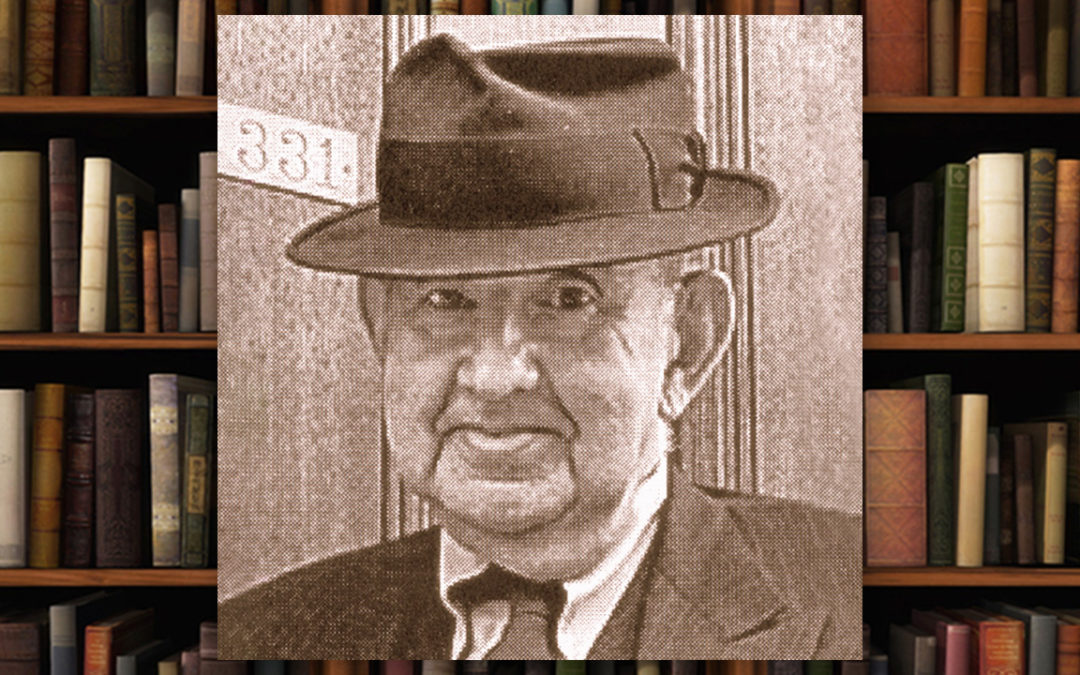
by Robert Bowie, Jr. | Dec 20, 2022 | Featured, Personal, Poetry
I have been discovering that love grows over time with reflection.
In 1965, Hogans Goat, a verse drama about love and politics set in turn-of-the-century Irish Brooklyn ran for over 600 performances on Broadway. It was written by Harvard Professor William Alfred, about the world in which he had grown up. In the early ’70s it was made into a movie.
Alfred was a legend at Harvard. Everyone loved him because he was completely approachable, lived in unassuming rumpled clothes, and had a habit of giving all the change in his pocket to the street people in Harvard Square. He knew some of them by name.
As a teacher, he was beloved because he taught an unbelievably good class on Beowulf, old English, and poetry in Sanders Theater every year to well over 500 adoring undergraduates. That is a testament to his talent.
He lived alone in a little house on Athens Street just outside of Harvard Square.
I was terrified when I was admitted as a transfer student to Harvard. The summer before my first classes, I had seen Hogan’s Goat on TV. It was great. I couldn’t get enough of it.
I was terrified of the place but I was a determined starstruck groupie with a plan.
As soon as I got my student ID, I went to Nick at Brattle Florist in Harvard Square. Nick was a proprietor and a friend. I had started buying corsages from him in high school, and I loved just going into his shop to talk to him.
I had decided to buy flowers and knock on Professor Alfred’s door to tell him the truth about being a starstruck groupie who just wanted to meet him.
Nick told me that Professor Alfred came in regularly, so he knew his favorite fresh flowers.
I took my bouquet early in the afternoon to Professor Alfred’s little house. I carefully ascended the three steps and almost knocked on his door, but I lost my nerve. I made two more passes before I finally knocked on the door and waited.
When he answered, I immediately straight-armed my flowers at him as I stood on the top step and I told him I was a transfer student who knew no one but I was a big fan of his and then I turned to go. He thanked me and to my surprise he said, ”Come in. I’m making tea.”
I entered into his little living room and sat in one of the wing chairs next to a little fireplace with a small clock on the mantle.
Professor Alfred returned with the flowers in a vase and a pot of tea with cups. He settled in and started to ask me questions. I was caught completely off guard. I talked too much about myself because I was nervous. But finally, I had the sense to ask him questions about the play as I kept an eye on the little clock on the mantle. I did not want to outstay my welcome, but I didn’t want to leave.
After almost 25 minutes, I stood up and apologized for staying so long, and Professor Alford asked me, “Do you have a tutor?” I didn’t know what a tutor was so I was sure I could confidently tell him, “No, I don’t.” He promptly replied, “I can be your tutor.” I promptly accepted, even though I had no idea what that meant.
That night, I went to my first dinner at Kirkland House, my new dorm along the river. I had been assigned a room and I told the three or four boys who randomly settled their trays at my table that I was a transfer student and I wondered if they knew what a tutor was. I was told it was like a graduate student who was sort of an academic big brother. I told them I had randomly met Professor Alfred that afternoon and he had offered to be my tutor.
My dinner companions were shocked. “You’re kidding! Alfred is your tutor?” The next day, I rented a room on Putnam Avenue and never stopped studying for fear I would flunk out.
I was convinced that once my fellow classmates at Harvard discovered how stupid I was, it would be the rage of the campus and I would be pointed out continuously, so I never moved in to Kirkland house.
For two years, once a week at 8:30 a.m., I met Professor Alfred and we studied poetry together. At the end of each meeting he would ask, “What do you want to learn next week?” There were no limits. We talked about Greek metrics and rhymes in English and non-English in translation, and poetry all the way back through Beowulf.
In the spring, we would set up two chairs in his little backyard and he would feed the squirrels by hand as we talked. Quite unconsciously, he became my poetic surrogate father. In short, I fell in love with the man, the devout Catholic, the humanitarian and the poet.
He would at times quote from memory poems he liked. One time, he quoted: “There is in God (some say) a deep, but dazzling darkness…”
It was by Henry Vaughan (1621–1695), but I didn’t take in the rest of it. His recitation had stopped me in my tracks because of the way he delivered it. He measured out the rhythm in the air and there was an intensity in the way he looked at me that made me lose my concentration.
Although Professor Alfred was in late middle age, he loved life, and I loved that he rose to almost any occasion.
One morning as I entered, Robert Lowell, the famous poet was leaving. Professor Alfred explained, “Cal wanted to go see the artistes last night.” They had gone down to the “combat zone“ in Boston because Lowell, the old Brahman, very much out of character, wanted to see the strippers at work.
One morning as I entered, Faye Dunaway, the star of Hogan’s Goat, and Peter Wolf, the lead singer for The J Geils Band, were on the couch in the living room. The two had obviously been on a very creative overnighter, and Alfred had sat up with them because they were friends.
I graduated with honors in 1973, and when I would visit Boston or Cambridge I’d visit Nick to pick up flowers and knock on Alfred’s door. If he was in we would always talk.
It was always professor/student but it was always friend to friend. The phone would ring occasionally, and he would smile and say, “They will call back I am certain,” and we would talk some more. The friendship ripened and grew stronger over time.
In June of 1999, I traveled up to Cambridge and ambled into the Brattle Street Florist, found Nick and requested my customary bouquet of flowers. Nick looked up from the flowers he was arranging for a customer. He dried his hands as he stopped his work to talk to me. He faced me, paused, and said “He died last month. He’s up in the Harvard lot in Mt. Auburn Cemetery.”
I read last month in The Crimson that the Brattle Florist would be closing.
Nick had died but I stopped there when I was in Cambridge and got flowers. I took them to Mt Auburn and found Alfred’s grave below the tower, up the hill.
The gravestone read:
“There is in God (some say)
A deep, but dazzling darkness.
Oh, for that night where in him
I might live in visible and dim.”
I had missed those last two lines when he’d read them, which defined him perfectly.
There was no one around, so I spent a lot of time with him, and when I got up, my knees were wet from the ground. I think I loved him more then than I ever had before.
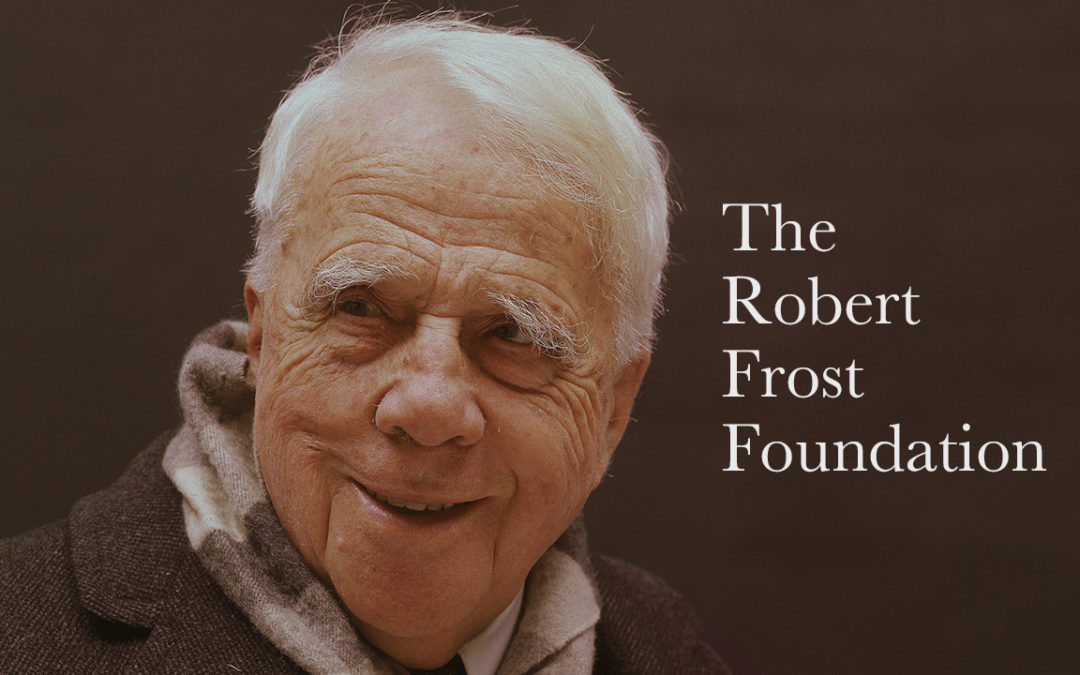
by Robert Bowie, Jr. | Oct 18, 2022 | Featured, Personal, Poetry
Last Tuesday, October 11th, at 7 pm, the Robert Frost Poetry Foundation hosted a Zoom reading by the winner and ten runners-up of the annual 2022 Robert Frost Poetry Contest. The winners came from as near as New York and as far away as New Zealand.
I was extremely fortunate to have my sonnet, “Summer Thunderstorms,” chosen as the first runner up. This is a real honor.
These readings lit me up!
Every single one of the poems was exquisite but what was personally wonderful for me was Helena Minton, who I have not seen since high school, was on that call. This high school, the Cambridge School of Weston, was a remarkable place because it respected the arts as a part of life rather than a collateral activity.
Helena and I were both on the board of the literary magazine of the Cambridge School of Weston. Also on that board was Susanna Kaysen, who wrote “Girl Interrupted,” which became a movie starring Winona Ryder. Helena has also become a well respected writer. The Boston Globe recently gave her rave reviews for her new and selected poems entitled Paris Paint Box, which I have read and highly recommend. I cannot name every member of that high school board, but they each were accomplished writers even in high school.
As I remember, we met once a week in the basement of one of the school buildings, and our faculty advisor was Mr. Pastorini, who took this stuff seriously.
The quality of the work that we received for publication was consistently very high and we learned from each other as we shared our perspectives about the submissions by our schoolmates.
I raise this because, again and again, I realize that the seeds and roots of my efforts now, fifty years later, to create a second career as a playwright and poet were planted and nurtured at that school and in that basement.
A month ago, the little library near where I live offered me a chance to teach a class in poetry. I am going to teach it in the same way as I was taught. We will learn from each other in a nurturing environment.
I have also been invited to start an open mic at a newly created independently owned cultural center in Monkton, The Manor Mill. I will try to support it much the way Mr. Pastorini ran that school magazine. We will learn from each other in a nurturing environment.
Finally, I had lunch yesterday with Allen Reese, who is a well respected poet, professor and previous publisher, to learn how to put together a small press to support the class and the open mic readings.
The real heroes, however, are Angelo Otterbein, the entrepreneur who created the Manor Mill only a year ago. It is growing into its future as a home for all the arts — from the visual arts and crafts, music in all forms, and writing. Similarly, Cynthia Weber at the Hereford Library opened a room and planted chairs in a circle for my class, with several recommended poetry books on a table nearby.
What little I can do I owe to these new and old friends who have nurtured me and given me the unbridled courage to be a little different and to create.
Do unto others, especially when others have done right by you.
———
Summer Thunderstorms
As with the generations long since dead
The fire and brimstone of the status quo
Wakes him up from the safety of his bed
And lightning frames him in the window
And photographs him in its afterglow.
Tonight he feels his present and its past
As the summer storm also comes and goes.
Conclusions are foolish in a world so vast.
For at the edges of his world and heart
Far past the farthest boundary of his grasp
Where ideas cause worlds to come apart
He lives in this place that will not last.
He loves his life more than he can explain
And leaves the window open to hear the rain.
———
I hope you will consider joining all those who taught me that the arts are at the heart of life. You can find An Accidental Diary on Amazon and, after you have enjoyed it, please spread the word. Give it away. The arts are not just a collateral activity.
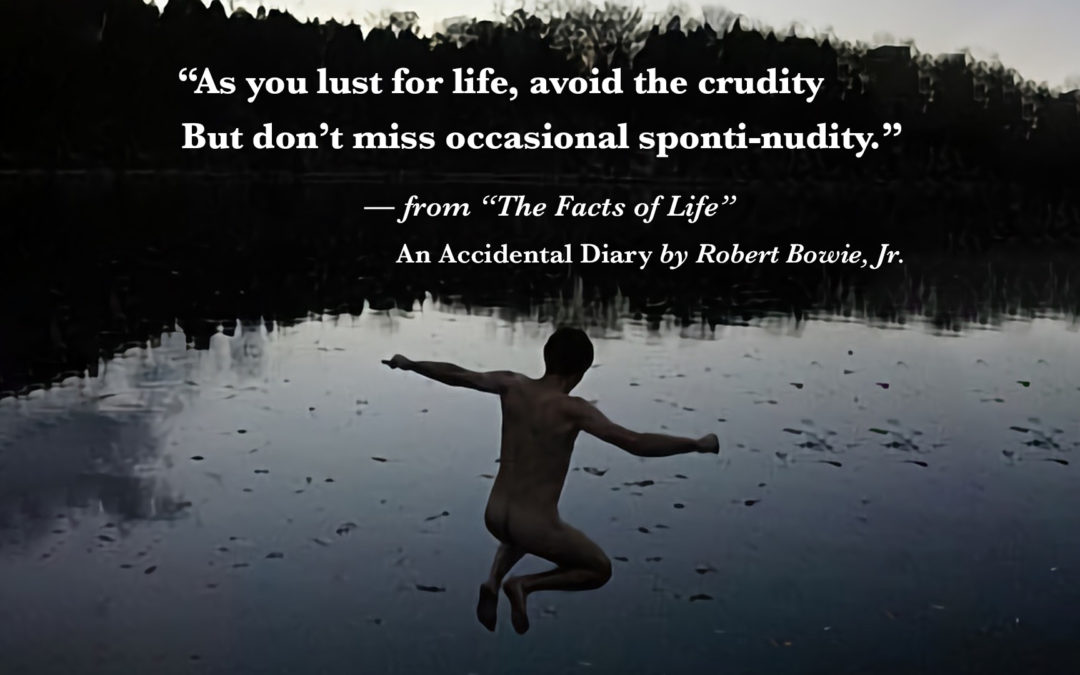
by Robert Bowie, Jr. | Jul 19, 2022 | Featured, Personal, Poetry
…Out of the rain of last week.
I’m back to work. Watch me pitch.
As a child growing up in New England I quickly adopted “Yankee entrepreneurship” and I completely embraced “self-reliance,” which required me to not work for others during summer vacation in case I felt an urgent need to go to the beach.
One summer back in the late 1960s, two high school friends and I started the “Right On House Painting Company.” This was a highly independent entrepreneurial effort.
Our advertising amounted to a forceful announcement of the company name followed by the lifting of our right fist to the sky and pledging solemnly: “Right On”!
We were, of course, saluting latex paint.
Because we were under-funded and had to keep the overhead low, we lived in an old barn off of Upper Lambert’s Cove Road, which we rented from a local commercial fisherman who had at least twenty cats and had been drunk all winter.
We struck a deal for $15 a week rent if we would help him remove the long johns he had been wearing all winter.
Despite the bargain rent, he got the better deal.
We cleaned out the barn and divided it into quadrants so each of us had a room and there was a room left for eating, drinking and entertaining.
It was our “green” corporate headquarters.
We had no running water but refused to live without elegance, so we built an outhouse in a birch grove with a white wicker chair with the bottom cut out of it. We were proud to be feeding the birch trees.
We were way ahead of our time.
We bathed nearby in Ice House Pond — pretty much always at night so we didn’t get our bathing suits wet.
To reduce automotive and travel expenses, we generally hitchhiked with a can of paint and a brush in one hand and our thumb extended from the other in order to get to work.
It was also an early form of targeted corporate advertising, since we ended up meeting everybody on Martha’s Vineyard over the summer.
Every ride was a job interview from the passenger’s seat, but it didn’t matter because we were on your way to work anyway.
Our corporate mission statement required that on sunny days we went to the beach. On rainy days, we played poker. On hazy days we painted houses.
We made good money.
When asked about our profit margins we would announce: “Enough is as good as a feast” and drop our eyes and lift our fist to the sky.
My entrepreneurial spirit has never died.
I have avoided being an employee over the last several decades by starting a law firm and retiring to become a poet and here I am selling my book… but man do I have a deal for you!
It’s all about how you look at things.
Don’t look at this book as poetry — everybody hates poetry and a book of sonnets is worse.
But! If you look at it like sort of a Bible written in rhyme and rhythm or maybe just “Easy Go’n Bob’s Book of Random Wisdom,” then why not?
Keep it where you can read just one sonnet at a time uninterrupted. Like the bathroom. Or a wicker chair with a hole in it. I’m not proud.
Consider the sonnet entitled “The Facts of Life,” obviously composed for future generations.
———
The Facts of Life
I swam, back then, with some father’s daughters,
Back stroking only slightly out of touch,
Out to the raft in the starry waters
And never thought of their fathers all that much.
My child, don’t judge me till you’re fifty-five
But there were midnight visits to “Ice House Pond,”
In my misspent youth, when I was still alive,
Where couples would strip, and swim and then bond.
And my child, this I know for sure is true:
At seventeen we all are born to be free
But ’cause I’m your father and I love you
Please consider this seasoned advice from me:
As you lust for life, avoid the crudity
But don’t miss occasional sponti-nudity.
———
Get it in softcover or on Kindle I don’t care. Get a copy and after you have read it, give it away. Spread the word. That is all I want.
It’s sometimes a little scary and sometimes a little sad and often about self-reliance, defiance, a second life, and “which way is the beach?”
Right On!
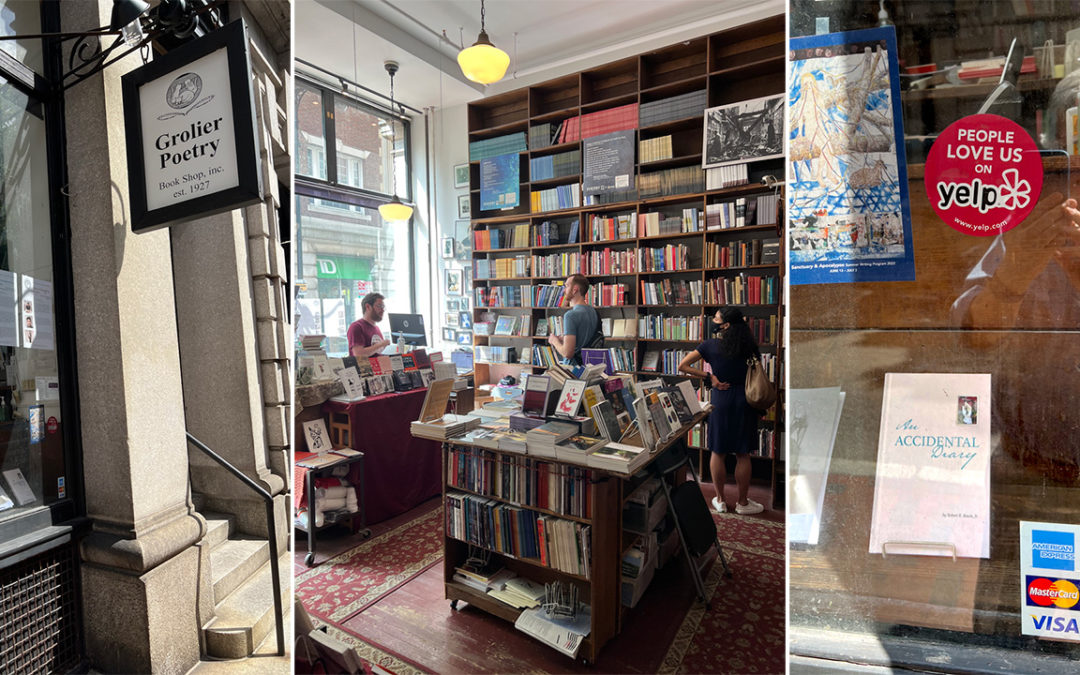
by Robert Bowie, Jr. | May 31, 2022 | Featured, Poetry
As a young boy, I lived in the sports pages and played on sandlot baseball diamonds after school. I dreamed about the big leagues. My dreams and my future were one.
As a young man, things became a little more complicated.
I couldn’t really hit a curve ball and I started noticing that the second question that people asked grown-ups after their name was “What do you do?”
Businessman? Doctor? Lawyer? With high school, a wider and more terrifying world was opening up.
I stumbled on T.S. Eliot and his poem, “The Love Song of J. Alfred Prufrock,” in which he wrote about the early 20th century. It is set in Boston’s Beacon Hill.
It seduced me from my fading childhood into my predestined future with its opening lines:
Let us go then, you and I,
When the evening is spread out against the sky
Like a patient etherized upon a table;
Ezra Pound pronounced this poem as “modern” — part of the dark reality of the new century and its new poetry. And so it was for me, standing there, in the Grolier Poetry Book Shop with J. Alfred Prufrock in my hand, a freshly minted teenage groupie at a one-room bookstore with towering bookcases.
Grolier was intimidating, but it held a world of new alternative heroes as I was losing my childhood and falling into the shadows of some job that would define me when asked “What do you do?”
How did this happen?
Posted on the front door of Grolier Poetry Book Shop was a blunt sign: “No Law. No History. No Economics. No Biology. No Physics. No Chemistry. Only Poetry!”
Gordon Cairnie, one of the founders, would sit on an old couch and hold court with published poets who were different in every way than the people I knew.
He waited for some unsuspecting student to walk in and ask if the store sold law books or the like.
Gordon would unload on the innocent walk-in and turn all the heads of the browsing readers when at the top of his voice he would answer, “No! But what difference does it make to you because you can’t even read the sign!”
Everyone would laugh in this freshly reconsecrated space and the young student was sure never to return again.
The point of entry to this new world was the “dare to be different” commitment to admit out loud that you were a poet and a believer, not a tourist.
I was way too shy.
This was a lot different than sandlot baseball, but within it there was still room to dream.
Over the years, the Grolier had become a focus of poetic activity in the Cambridge area, itself a magnet for American poets because of the influence of Harvard University. Poets such as John Ashbery, Robert Bly, Robert Creeley, Donald Hall, and Frank O’Hara were regulars at the store during their time as undergraduates at Harvard. The poet Conrad Aiken lived upstairs from the store in its early days.
Numerous other poets and writers are noted as “friends of the Grolier,” including Russell Banks, Frank Bidart, William Corbett, E. E. Cummings, T. S. Eliot, Lawrence Ferlinghetti, David Ferry, Allen Ginsberg, Denise Levertov, Marianne Moore, Charles Olson, Robert Pinsky, Adrienne Rich, Ruth Stone, James Tate and Franz Wright, to name just a few.
The bookstore claims to be the oldest continuous bookshop devoted solely to the sale of poetry and poetry criticism.
This September it will be 95 years old.
I was committed to keeping up with the rest, going to law school and succeeding — and I did. But I couldn’t forget the voices at Grolier and my prior fear of admitting out loud I wanted to be a poet.
When my travels would lead me to Boston, I would always go back to make sure it was still there. I would always buy a book or two to justify my visit and my love of lounging there for awhile.
Last Saturday, I was in Cambridge. I brought two copies of my first book of poems, An Accidental Diary, to give to friends I planned to see.
That morning in the hotel room, an idea hit me. I looked up the Grolier Poetry Bookstore and before I let better judgment kick in I called and asked for the proprietor, James Fraser. I told him I had two copies of a book, explaining one poem was runner up for the Robert Frost Foundation Poetry Award and another had been chosen for an upcoming anthology in Baltimore. I asked him if he would consider putting them up for sale on the shelves.
I told James I had been going into the bookstore for over 50 years and had studied with Professor William Alfred and Elizabeth Bishop whose books were on the shelves and pictures on the walls.
He invited me to drop by. I immediately walked my two books over and told him more of my story. I encouraged him to read “Summer Thunderstorms” and “The Facts of Life” to show the range of the work.
He leafed through the book as we continue to talk. There were a few people browsing as there always are and I took a moment to take a deep breath and just be surrounded by the place.
James looked up and smiled. He took both books out of my hand, looked up at me again, took one for the shelf and then put one book prominently in the front window.
Things this wonderful don’t really happen in real life but sometimes they do.
When I walked back to the hotel empty-handed looking down at the pavement with a stupid grin on my face, I felt like I had circled the bases on the sandlot!
I had always dreamed about the big leagues. But after a very long time my dreams and my future were again one.
(“An Accidental Diary” is also available on Amazon in paperback and Kindle.)
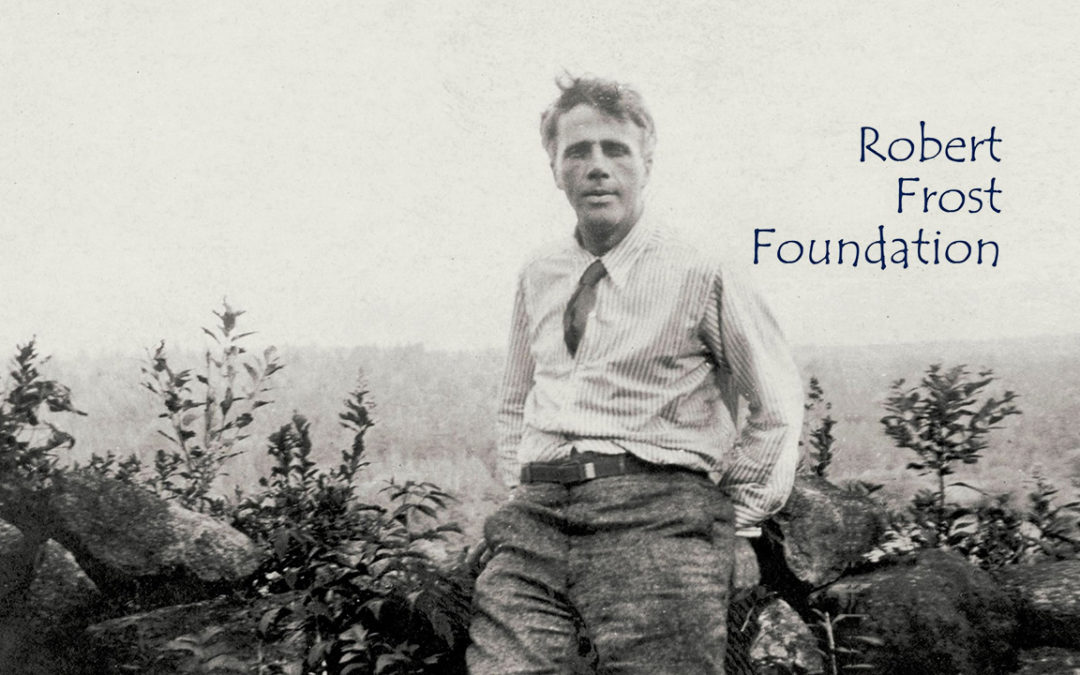
by Robert Bowie, Jr. | May 17, 2022 | Personal, Poetry
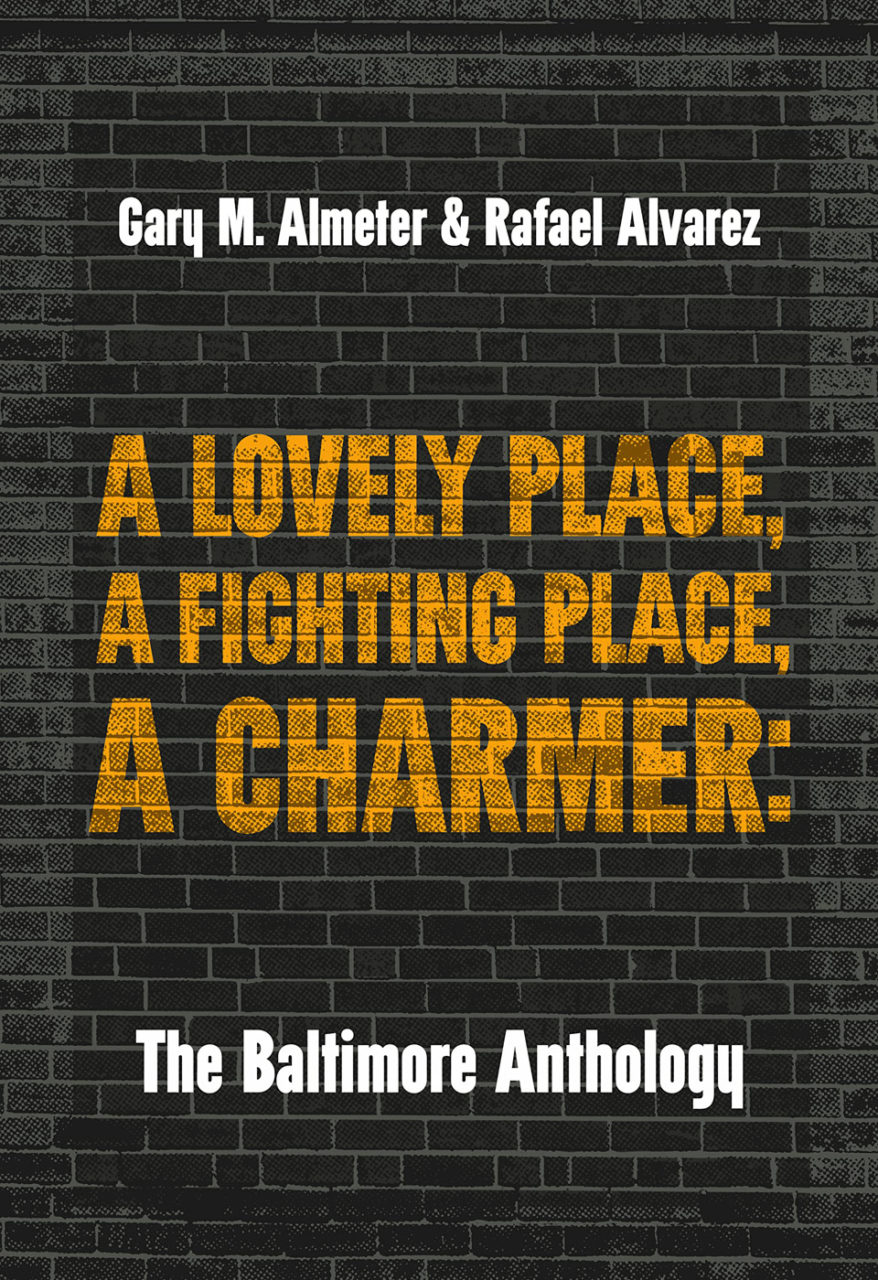
I started this blog several years ago in an effort to explore if there could a professional life in the arts after a full and satisfying first career.
Yesterday, I was notified that I had been chosen as a runner up for the Robert Frost Poetry Award for 2022 for my sonnet, “Summer Thunderstorms.” and last month, my sonnet, “City Snow,” was chosen to be included in the upcoming Belt City Anthology: A Lovely Place, A Fighting Place, A Charmer: The Baltimore Anthology.
Both entries are from my book, An Accidental Diary: A Sonnet a Week for a Year.
Help me celebrate and prove that there is the second life, after all!
Please buy a copy of these books and give them away, and ask that they be re-gifted by order of the author.
Here is the Robert Frost Foundation entry:
Summer Thunderstorms
As with the generations long since dead
The fire and brimstone of the status quo
Wakes him up from the safety of his bed
And lightening frames him in the window
And photographs him in its afterglow.
Tonight he feels his present and its past
As the summer storm also comes and goes.
Conclusions are foolish in a world so vast.
For at the edges of his world and heart
Far past the farthest boundary of his grasp
Where ideas cause worlds to come apart
He lives in this place that will not last.
He loves his life more than he can explain
And leaves the window open to hear the rain.
“Week 35” from An Accidental Diary
(Available now on Amazon in paperback and Kindle.)

by Robert Bowie, Jr. | Mar 8, 2022 | Poetry, Politics
The delicate interdependence that is nature also protects democracies. But it is difficult to recreate once eradicated.
The Heron
A tall shadow controls my autumn pond.
It moves on long legs and will stare and wait.
After the late March ice had come and gone
And the exchanged songs of the frogs that mate,
The lily pads rise through the clear water
To shelter the colonies of black tadpoles
That are born as eggs, like pupiled eyes, pure,
And, like the rest here, uncompromising souls.
The summer heat reveals the baby fish
Spawned by the survivors of last winter.
By August it is like my winter wish:
Blooming like some Eden, ready to enter.
The heron knows nothing of what I mean.
By noon it will have picked the pond all clean.
“Week 38” from An Accidental Diary
(Available now on Amazon in paperback and Kindle.)







